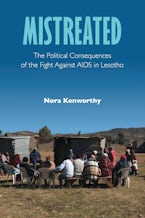- Home
- Dying Unneeded

Dying Unneeded
The Cultural Context of the Russian Mortality Crisis
Middle-aged Muscovites talk about being unneeded (ne nuzhny), or having little to give others. Considering this concept of "being unneeded" reveals how political economic transformation undermined the logic of social relations whereby individuals used their position within the Soviet state to give things to other people. Being unneeded is also gendered--while women are still needed by their families, men are often unneeded by state or family. Western literature on the mortality crisis focuses on a lack of social capital, often assuming that what individuals receive is most important, but being needed is more about what individuals give. Social connections--and their influence on health--are culturally specific.
In Soviet times, needed people helped friends and acquaintances push against the limits of the state, crafting a sense of space and freedom. When the state collapsed, this sense of bounded freedom was compromised, and another freedom became deadly.
This book is a recipient of the annual Norman L. and Roselea J. Goldberg Prize for the best project in the area of medicine.
Michelle A. Parsons is a sociocultural anthropologist with a background in global health. She has lived in Latin America, Spain, Switzerland, Indonesia, and Russia, working for non-governmental organizations and the World Health Organization. She currently teaches at Emory University.
"Writing with concise, compelling prose, Parsons reveals the flaws in existing explanations of Russia's mortality crisis and deploys her rich ethnographic findings to offer a persuasive, alternative explanation based on Russian notions of being 'unneeded.' "
--Michele Rivkin-Fish, author of Women's Health in Post-Soviet Russia: The Politics of Intervention











